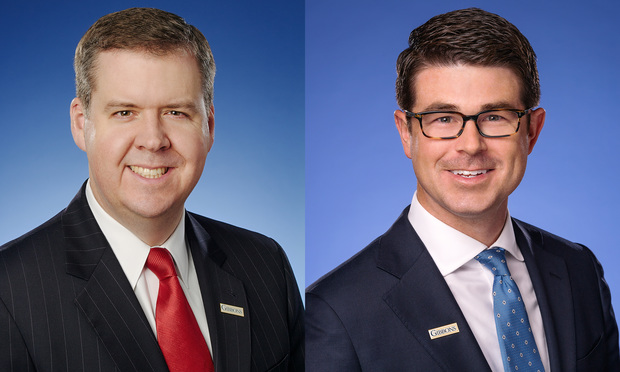Stephen J Finley Jr

February 05, 2024 | The Legal Intelligencer
Liability Is Just One Click Away!In Oberdorf v. Amazon.com, the plaintiff filed suit against Amazon alleging the product she purchased from a third-party vendor was defective. Although the U.S. District Court for the Middle District of Pennsylvania held Amazon was not a "product seller" within the meaning of Section 402A, the U.S. Court of Appeals for the Third Circuit disagreed, finding that Amazon qualified as a product seller, thus expanding the scope of strict products liability to include online sales platforms.
By Stephen J. Finley, Jr. and Cecilia Y. Carreras
7 minute read

May 27, 2021 | The Legal Intelligencer
The Case for Application of Comment k to Manufacturing Defect ClaimsComment k to Section 402A of the Restatement (Second) of Torts precludes all strict liability claims arising from injuries caused by certain categories of products, including prescription pharmaceuticals and medical devices.
By Stephen J. Finley Jr. and Jonathan T. Woy
8 minute read

January 31, 2017 | The Legal Intelligencer
The Gist of the Action Doctrine for Products Liability CasesPennsylvania recognizes the gist of the action doctrine in the realm of contract law. This claims-limiting rule ensures that a breach of contract case is focused on the terms of an agreement and the parties' performance of their contractual obligations. Claims based in tort, such as misrepresentation or fraud, are routinely dismissed and the cause of action limited to one for breach of contract.
By Stephen J. Finley Jr.
18 minute read

January 26, 2016 | The Legal Intelligencer
After 'Tincher,' Tried and True Products Liability Defenses Remain Just ThatSince the Pennsylvania Supreme Court's 2014 decision in Tincher v. Omega Flex, courts and practitioners alike have struggled to discern the legal standard for determining whether a product is defective under Pennsylvania product liability law.
By Stephen J. Finley Jr.
7 minute read

May 19, 2014 | The Legal Intelligencer
Work-Product Privilege Outweighs Broad Expert DiscoveryIn Barrick v. Holy Spirit Hospital, 2014 Pa. LEXIS 1111 (Apr. 29, 2014), a divided Pennsylvania Supreme Court left in place a decision of the Pennsylvania Superior Court creating "a bright-line rule denying discovery of communications between attorneys and expert witnesses."
By Madeline M. Sherry and Stephen J. Finley Jr.
7 minute read

March 31, 2014 | The Legal Intelligencer
Waiver of Attorney-Client Privilege Is a One-Way StreetThe attorney-client privilege continues to be a frequently litigated issue in Pennsylvania. In 2011, the Pennsylvania Supreme Court decided Gillard v. AIG Insurance, 15 A.3d 44 (Pa. 2011), which affirmed that the attorney-client privilege is a "two-way street" and confirmed that all communications between an attorney and the client are privileged.
By Madeline M. Sherry and Stephen J. Finley Jr.
7 minute read
March 05, 2010 | The Legal Intelligencer
Updating Pa. Products Law: A 'Reasonable' SuggestionPennsylvania courts prohibit the introduction of negligence concepts in the trial of a strict-liability products case.
By Stephen J. Imbriglia and Stephen J. Finley Jr.
8 minute read

September 18, 2009 | The Legal Intelligencer
After Bugosh, Pa. Products Liability Law Remains in FluxIn a June 16 per curiam opinion, the Pennsylvania Supreme Court determined that it had improvidently granted an appeal in the matter Bugosh v. I.U. North America Inc.
By Stephen J. Finley Jr.
5 minute read

December 07, 2011 | New Jersey Law Journal
Irreconcilable Differences in Prescription Drug Liability CasesLevine, Mensing and pre-emption of failure-to-warn claims brought under state law.
By Michelle M. Bufano and Stephen J. Finley Jr.
6 minute read

March 14, 2012 | The Legal Intelligencer
Navigating the Winding Road of Pennsylvania Privilege LawA little more than a year ago, using now well-known language, the Pennsylvania Supreme Court declared that the attorney-client privilege is a "two-way street." In Gillard v. AIG Insurance Co. , the court held that the protections of the attorney-client privilege apply both to communications from an attorney to the client, as well as to communications from the client to the attorney.
By Madeline M. Sherry and Stephen J. Finley Jr.
9 minute read
Trending Stories
- 1Thursday Newspaper
- 2Public Notices/Calendars
- 3Judicial Ethics Opinion 24-117
- 4Rejuvenation of a Sharp Employer Non-Compete Tool: Delaware Supreme Court Reinvigorates the Employee Choice Doctrine
- 5Mastering Litigation in New York’s Commercial Division Part V, Leave It to the Experts: Expert Discovery in the New York Commercial Division



